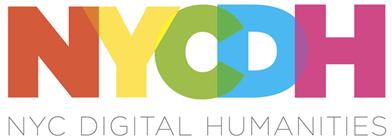Friday, March 31, 2017 (All day) to Saturday, April 1, 2017 (All day)
The Experimental Humanities (EH) concentration at Bard College, with support from the Andrew W. Mellon Foundation, will host a two-day conference on the theme of global-local experiments in the arts and humanities. The sciences and the arts have long used experimental methods to move from local circumstances (or, “deracinated particulars” in Francis Bacon’s words) to general, global discoveries, knowledge, and modes of expression. Over two days, this conference will foreground conversations that address the challenge of negotiating place-specific research and teaching with the desire for global interactions and exchanges. We hope to draw in a range of voices on broader questions regarding the challenges involved in moving across sites and scales of analysis and practice from different critical and historical perspectives.
Experimental Humanities is Bard’s liberal arts-driven answer to the Digital Humanities; it is an interdisciplinary scholarly and curricular initiative that examines how technologies mediate what it means to be human, using theoretical, historical, and practice-based methods. The conference will provide an opportunity to ask, what features of this approach and the approaches of other institutions can be adapted to different educational, social, and institutional contexts.
Alternating between plenary and parallel sessions, this conference will consider how the global and local intersect in digital practice and humanities-based experimentation. We invite proposals on topics, which may include, but are not limited to:
Critical approaches to scale (distant reading, macroanalysis, and so on)
Inter-institutional pedagogical strategies
Site-specific performance and art
Uses of social media to connect scholars and students across geographical contexts
Public history/crowdsourcing projects
Visualization methods for producing new perspectives on global-local connections
Incorporating digital practices and theory within liberal arts colleges and in undergraduate settings more broadly
We are especially interested in exploring potential presentation structures that challenge the traditional academic paper format within the 20 minute period of the talk. For example, presentations could be a conversation with a close collaborator, a discussion of the connection between your research and teaching/collaborations with undergraduate or graduate students, a performance or exhibition, etc. Submit your proposal, including a 300-word abstract, for presentations HERE.
We will be accepting proposals until January 15, 2017.
Registration for the conference will open in December 2016. For updates on the conference, visit: http://eh.bard.edu/conference2017/
